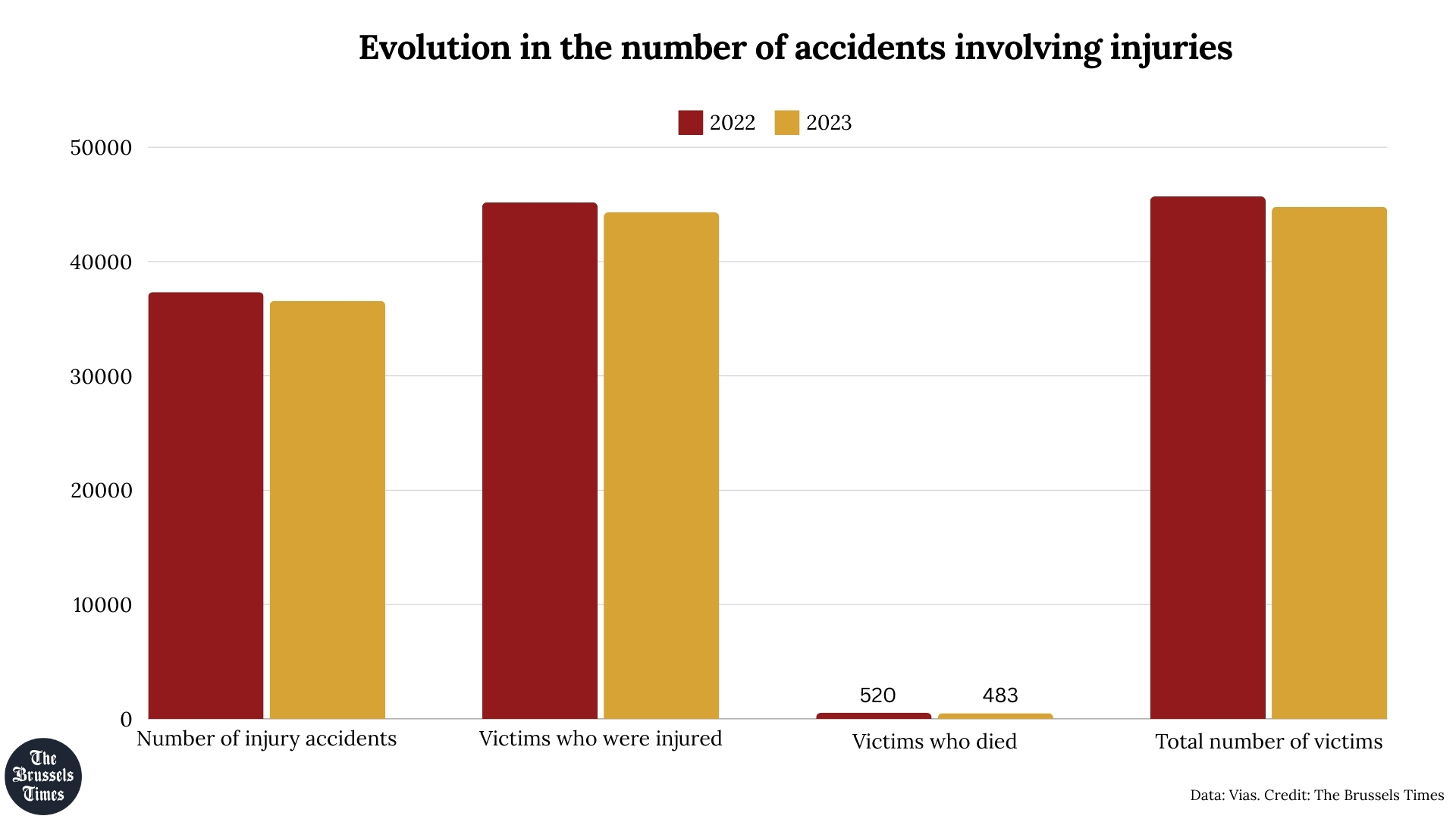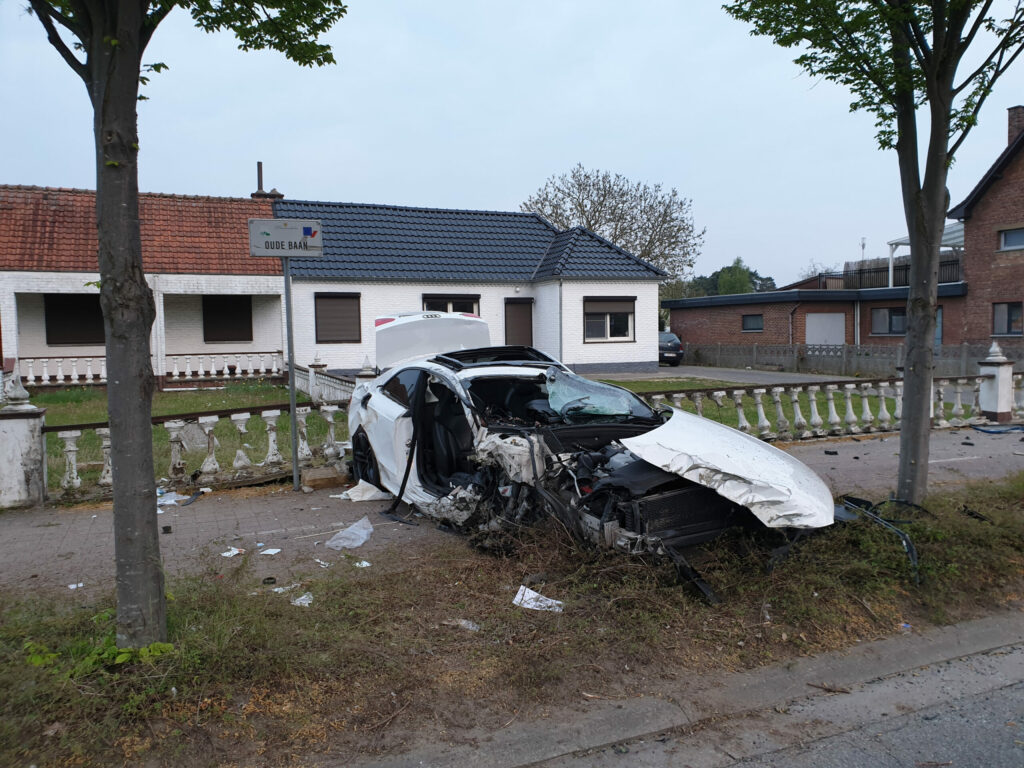Road deaths dropped to the lowest number ever in 2023 (excluding the pandemic year 2020), but too many people still die every week on Belgian roads.
Last year, 483 people died in a road accident in Belgium. This is 37 fewer than the 520 fatalities recorded in 2022 (-7%), the Vias Institute's latest Road Safety Barometer showed (based on figures from the federal police). Excluding the Covid years, this is the lowest number ever.
"Never before have so few people been killed or injured on our roads," said Mobility Minister Georges Gilkinet. A 31% drop in road deaths was recorded compared to ten years ago.
"This downward trend shows that when it comes to road safety, there is no room for improvisation, chance or, worse, complacency," especially as an average of nine people still die on Belgian roads every week.
Brussels records biggest drops
All regions across Belgium saw record-low numbers of road accidents when excluding the Covid-19 years of 2020 and 2021. In Wallonia, the number of road deaths fell from 228 in 2022 to 217 (-5%) in 2023, while in Flanders, the figure decreased from 271 to 261 (-4%).
The steepest fall, however, was recorded in the Brussels-Capital Region, where the number of road deaths fell from 21 to five in one year.
At the national level, there was an increase in fatalities among cyclists: 96 people died, up from 95 in 2022. More than one in three road deaths were pedestrians or cyclists. In Flanders, the number of cycling deaths even increased from 73 to 84 – the highest number in the last 20 years. Overall, the risk per kilometre driven for an individual user is falling.

The number of accidents involving vans, meanwhile, rose from 50 to 58 fatalities. "A very positive trend is the drop in motorcyclist fatalities from 65 to 49, the lowest number ever," Stef Willems, Vias' spokesperson, said.
Aside from the number of road deaths, all other indicators decreased as well. The number of accidents involving injuries fell by 2% from 37,322 to 36,557. Again, the downward trend was stronger in Brussels (from 4,141 to 3,752 accidents, or -9%) than in Flanders (from 23,216 to 22,693 accidents, or -2%). In Wallonia, there was even a slight increase in the number of road accidents (from 9,965 to 10,112, or +1%).
The number of victims, who either died or were injured in these accidents, decreased by 905 from 45,692 (of whom 520 died and 45,172 were injured) to 44,787 (483 deaths and 44,304 injuries).
More work to be done
Willems noted that, while it is difficult to explain the different trends, "the increase in the number of section controls and the abolition of tolerance margins at certain speed checks is undoubtedly having an impact on driver behaviour." The new rules for e-scooters also saw the number of accidents drop by 9% after this figure rose drastically for several years.
However, there is still much more work to be done. For example, the number of road deaths on weeknights almost doubled in one year (from 69 road deaths in 2023 compared to 36 in 2022).
"Almost four in ten (38%) of these fatalities are recorded the night of Thursday to Friday, which is an increasingly popular night for partying," Willems noted. Vias is therefore calling for extra checks for driving under the influence of alcohol and drugs, especially on Thursday nights.
Gilkinet also stressed that work will continue to strengthen convictions in the case of traffic rule violations: "I hope to work with the Minister of Justice to establish a new system for combating repeat offenders of dangerous driving."

